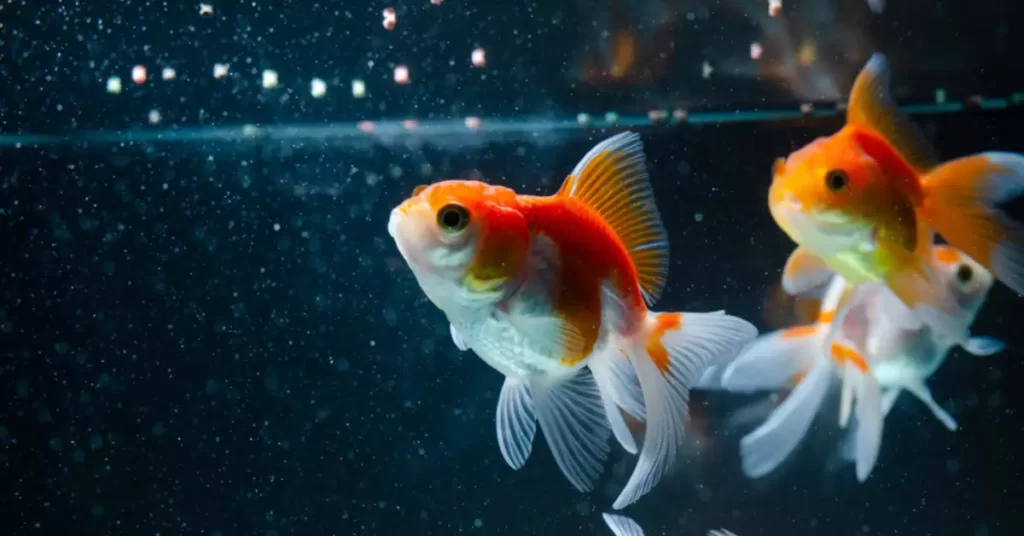Are you a betta fish owner, or planning to get one? If so, you might be wondering about the best diet for your colorful aquatic friend.
One of the frequently asked questions is whether betta fish can eat bloodworms. In this article, we’ll discuss the topic in detail, covering various aspects of bloodworms as a food source for betta fish. Let’s dive in!
Understanding Betta Fish Dietary Requirements
Natural Diet in the Wild
Betta fish, also known as Siamese fighting fish, are carnivorous by nature. In their natural habitat, they primarily feed on insects and insect larvae.
Their diet includes mosquito larvae, daphnia, and other small invertebrates.
Nutritional Needs in Captivity
When kept in captivity, betta fish require a protein-rich diet to thrive.
It’s essential to provide them with a balanced diet containing essential nutrients like proteins, fats, vitamins, and minerals.
A high-quality betta fish pellet or flake food should be the staple diet, with occasional treats like live or frozen foods to keep them healthy and happy.
Bloodworms: An Introduction
What are Bloodworms?
Bloodworms are the larvae of non-biting midge flies. They are called “bloodworms” due to their bright red color, which is a result of the hemoglobin in their bodies.
Bloodworms can be found in freshwater environments and are a popular food source for many fish species.
Types of Bloodworms
Bloodworms are available in three different forms: live, frozen, and freeze-dried. Each type has its pros and cons, which we’ll explore later in the article.
Can Betta Fish Eat Bloodworms?
Yes, betta fish can eat bloodworms. Bloodworms are a great source of protein, which is essential for betta fish growth and overall health.
However, bloodworms should only be offered as a treat, not as a staple diet. Feeding betta fish bloodworms too frequently can lead to health issues such as obesity and constipation.

How to Feed Bloodworms to Betta Fish
Live Bloodworms
Live bloodworms provide the most nutritional value and are the most stimulating for betta fish.
However, they can carry parasites and bacteria, so it’s crucial to source them from a reputable supplier.
To feed live bloodworms, use a tweezer or pipette to drop a few into the tank.
Frozen Bloodworms
Frozen bloodworms are a safer alternative to live bloodworms, as they are typically free from parasites and bacteria.
Thaw the bloodworms in a small container of tank water before feeding them to your betta fish.
Freeze-Dried Bloodworms
Freeze-dried bloodworms are the most convenient option, as they have a long shelf life and are easy to store.
However, they can cause constipation if not rehydrated before feeding. To rehydrate, soak them in a small container of tank water for a few minutes before offering them to your betta.
How Often Should You Feed Bloodworms to Betta Fish?
Bloodworms should be fed to betta fish as an occasional treat, no more than once or twice a week.
This ensures that your betta receives a balanced diet while still enjoying the nutritional benefits of bloodworms.
The Importance of a Varied Diet for Betta Fish
A varied diet is crucial for betta fish to ensure they receive all the necessary nutrients for optimal health.
While bloodworms are a nutritious treat, they should not make up the majority of your betta’s diet.
High-quality pellets or flakes specifically formulated for betta fish should be their primary food source, as these contain a balanced mix of proteins, fats, vitamins, and minerals.
In addition to bloodworms, you can offer your betta fish other live or frozen foods, such as brine shrimp, daphnia, and mosquito larvae.
These treats not only provide variety in your betta’s diet but also encourage their natural hunting instincts, keeping them stimulated and active.
Remember to always follow feeding guidelines and avoid overfeeding, as this can lead to health issues and poor water quality in the aquarium.
FAQs
Can betta fish eat only bloodworms?
No, betta fish should not be fed only bloodworms. Bloodworms should be considered a treat and not a staple diet.
Betta fish require a balanced diet that includes high-quality pellets or flakes as their main food source.
Can overfeeding bloodworms harm betta fish?
Yes, overfeeding bloodworms can harm betta fish. Excessive consumption of bloodworms can lead to obesity, constipation, and other health issues.
It’s essential to feed bloodworms sparingly and maintain a balanced diet for your betta fish.
Can I feed my betta fish other live or frozen foods besides bloodworms?
Yes, there are other live or frozen food options that betta fish enjoy. Some popular choices include brine shrimp, daphnia, and mosquito larvae.
Like bloodworms, these should be offered as occasional treats to supplement a balanced diet.
Conclusion
Betta fish can indeed eat bloodworms, and these protein-rich treats can be a valuable addition to their diet.
However, it’s important to remember that bloodworms should be fed sparingly, with high-quality pellets or flakes making up the majority of your betta’s diet.
By offering a varied and balanced diet, you’ll ensure that your betta fish stays healthy, active, and vibrant.